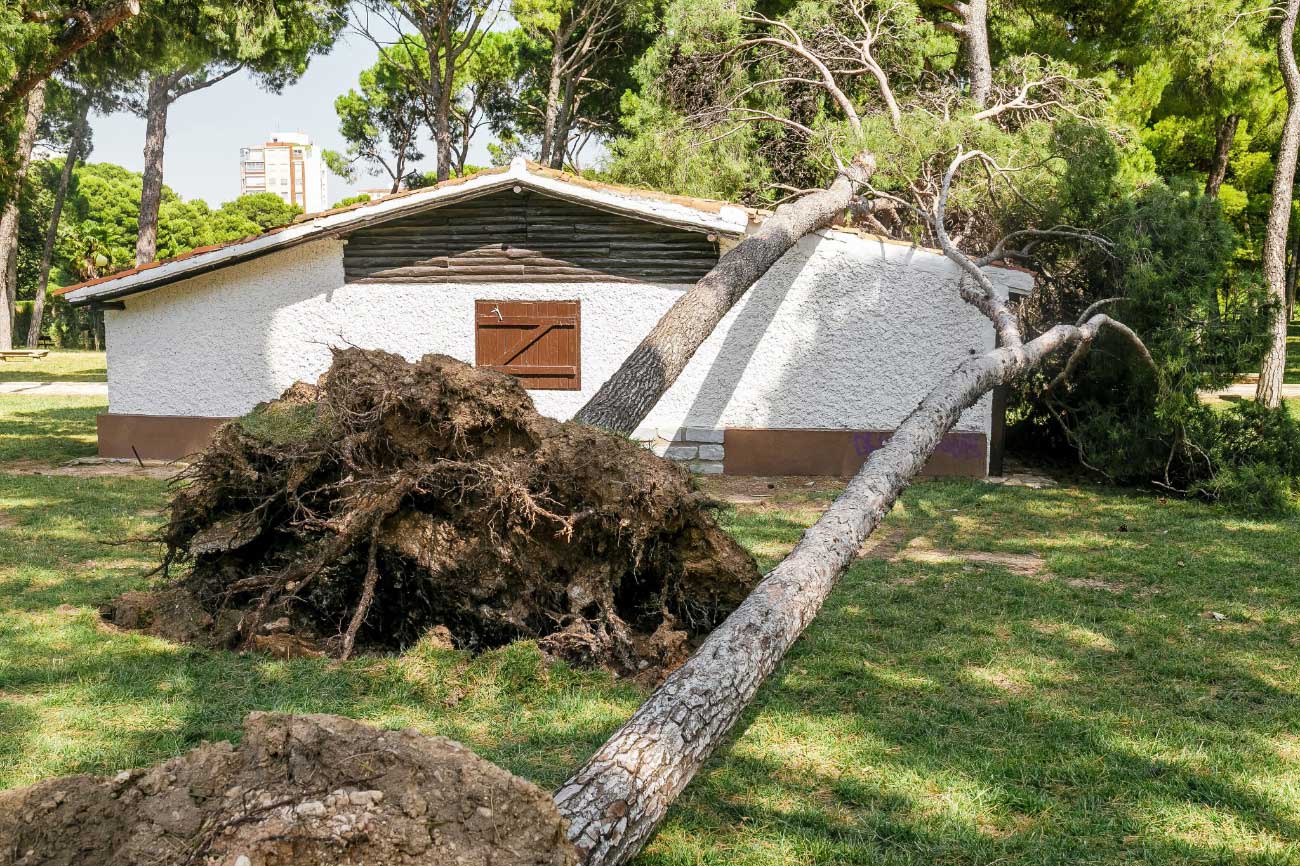
¿Quién es responsable de un accidente automovilístico sin conductor?
diciembre 11, 2019
¿Cuándo debería involucrar a un abogado en su reclamo por daños a la propiedad?
enero 6, 2020
Vaping es un tema candente y divisivo hoy en día. Toda la prensa, la controversia y el debate comenzaron realmente en marzo de 2019, cuando los pacientes comenzaron a manifestar síntomas de lesiones pulmonares. No fue hasta abril cuando la gente empezó a ingresar en los hospitales. Luego, desde mediados de julio hasta mediados de agosto, cientos de personas empezaron a ser ingresadas en hospitales con afecciones pulmonares graves, a veces mortales.
El denominador común de todos estos pacientes fue el uso de cigarrillos electrónicos. Algunos estados se vieron mucho más afectados que otros: California, Texas, Michigan e Illinois registraron las tasas más elevadas de enfermedad.
Las víctimas de estas enfermedades relacionadas con el vapeo han resultado gravemente heridas, y muchos medios de comunicación sugieren que sus pulmones podrían no recuperarse nunca del todo. Algunas familias lloran la muerte de sus seres queridos, algunos de los cuales estaban en la flor de la vida.
Estas familias pueden tener casos de homicidio culposo, y las víctimas sobrevivientes pueden tener casos de lesiones personales, pero tratar con éxito esos casos puede no ser fácil, al menos no de inmediato. Las oficinas legales profesionales de Kanner & Pintaluga entienden los tecnicismos y matices de las leyes vaping, y estamos aquí para luchar por aquellos que pueden haber visto los efectos secundarios adversos resultantes del uso de cigarrillos electrónicos que creían que era seguro.
¿Quién debe presentar una demanda?
Si usted o un ser querido ha sufrido complicaciones de salud debido a vaping, la presentación de una demanda puede ser un paso fundamental para asegurar la justicia y el alivio financiero. Los fabricantes y distribuidores de vapeadores tienen el deber de garantizar que sus productos sean seguros y estén debidamente etiquetados. Desgraciadamente, muchas empresas no informaron de los graves riesgos asociados al vapeo, como la presencia de sustancias químicas nocivas y el potencial de adicción a la nicotina, sobre todo en usuarios jóvenes.
Una demanda por vapeo no sólo responsabiliza a estas empresas, sino que también permite a las víctimas obtener una indemnización por las facturas médicas, los salarios perdidos y los efectos a largo plazo del dolor y el sufrimiento. Si recurre a un abogado especializado en vapeo de confianza, no solo obtendrá la indemnización que merece, sino que también contribuirá a luchar por una mayor protección de los consumidores y a concienciar a la opinión pública.
¿Qué hace que los productos de las empresas para vapear sean ilegales?
Para que un caso de lesiones personales o muerte por negligencia prospere, su abogado debe poder demostrar que la parte culpable fue negligente y, en algunos casos, que distribuyó a sabiendas un producto que no era seguro.
Si finalmente se descubre que un fabricante concreto de líquidos para vapear está en el centro de todas estas lesiones y muertes, es muy posible que se le considere responsable. El acuerdo final puede ser aún mayor si se demuestra que el fabricante falsificó las pruebas de laboratorio o simplemente no siguió el protocolo de seguridad adecuado a la hora de fabricar sus productos.
A pesar de lo que digan algunos expertos o tertulianos de los medios de comunicación, existen regulaciones de la FDA para los e-líquidos. En 2016, la FDA aprobó una norma que clasificaba todos los sistemas electrónicos de suministro de nicotina (NDS) como productos del tabaco, lo que significa que deben cumplir las mismas normas que los cigarrillos, los puros y otros productos del tabaco.
La FDA exige a las empresas tabaqueras que presenten documentos sanitarios y listas de ingredientes de sus productos, pero si algunos de los fabricantes mintieran o no cumplieran todas las normas necesarias, ello contribuiría a favorecer el caso de las víctimas de lesiones y las familias de las víctimas de homicidio culposo. Todavía no se han estudiado a fondo las nuevas tecnologías de vapeo ni las cuestiones pendientes, como los efectos a largo plazo de la nicotina sintética, por lo que es difícil predecir el futuro del sector y su impacto en la salud.
Posibles tipos de lesiones por vapear
Aunque el vapeo puede parecer una alternativa más saludable al tabaco tradicional, se han documentado riesgos y numerosos relatos de efectos secundarios adversos e incluso complicaciones de salud a largo plazo causadas por los impactos negativos de estos productos de vapeo. Algunos de los problemas de salud más frecuentes son:
Enfermedades pulmonares
- Pulmón de palomitas de maíz (bronquiolitis obliterante) causado por el diacetil de los aromatizantes.
- EVALI (lesión pulmonar asociada al uso de cigarrillos electrónicos o vaping).
- Bronquitis crónica, exacerbación del asma y otras afecciones respiratorias de larga duración.
Cuestiones cardiovasculares
- Frecuencia cardiaca y presión arterial elevadas.
- Aumento del riesgo de infartos de miocardio o accidentes cerebrovasculares, sobre todo en usuarios jóvenes.
Adicción y efectos en la salud mental
- La adicción a la nicotina provoca trastornos del estado de ánimo, ansiedad y depresión.
- Síntomas de abstinencia y cambios de comportamiento, especialmente entre los adolescentes.
Convulsiones y complicaciones neurológicas
- Informes sobre convulsiones relacionadas con el consumo de productos con alto contenido en nicotina.
- Posible deterioro cognitivo en cerebros jóvenes debido a la exposición temprana a la nicotina.
Explosiones y quemaduras
- Mal funcionamiento de los dispositivos, como explosiones de baterías, que causan lesiones físicas y traumatismos.
- Quemaduras químicas por exposición al e-líquido.
Riesgos sanitarios del vapeo y sus derechos
Todos los consumidores tienen derecho a estar informados sobre los posibles riesgos para la salud de los productos que utilizan. Cuando las empresas no revelan esos peligros -o peor aún, comercializan sus productos como alternativas seguras- se les puede exigir responsabilidades legales.
Las personas perjudicadas por la laxitud de la legislación sobre vapeo tienen derecho a reclamar una indemnización por sus lesiones y las cargas económicas asociadas a ellas. Esto incluye el derecho a presentar una demanda relacionada con el diseño defectuoso del producto, la publicidad engañosa o la omisión de advertencias adecuadas.
También puede haber motivos para emprender acciones legales debido a las prácticas de marketing dirigidas que contribuyeron a la adicción o lesiones de los menores y sus familias. Tanto si sufre daños pulmonares a largo plazo, adicción u otra complicación relacionada con el vapeo, nuestro equipo está aquí para garantizar la protección de sus derechos y que se escuche su voz.
Demandas actuales sobre vapeo
Hay varios juicios en curso y demandas colectivas contra empresas de cigarrillos electrónicos, principalmente JUUL. La mayoría de las demandas actuales contra JUUL tienen que ver con la empresa comercializar sus productos a menores. Aunque la empresa siempre ha afirmado enfáticamente que sus productos están pensados únicamente como una herramienta para dejar de fumar destinada a los adultos, muchas personas alegan que los esfuerzos de marketing de la empresa están diseñados para atraer a los jóvenes y que algunos de los sabores que vendían, como los de caramelo, fruta y galleta, estaban pensados para atraer a los jóvenes. La empresa dejó de vender esos sabores en noviembre de 2018.
Demandas adicionales que afirman que algunos usuarios sufrieron convulsiones o derrames cerebrales debido al uso de JUUL, y otras que alegan que JUUL no hizo lo suficiente para informar a los usuarios de su potencial adictivo. JUUL, que llegó a ser la empresa dominante en el mercado, se ha enfrentado a numerosas acciones legales por parte de particulares, distritos escolares y gobiernos estatales. La empresa ha llegado a acuerdos por valor de más de 1.400 millones de euros debido a su agresiva publicidad dirigida a los jóvenes y a que no advirtió de los riesgos para la salud. Otras marcas de vapeadores, como Puff Bar, también son objeto de escrutinio por saltarse la normativa de la FDA y reintroducir productos aromatizados.
También se han presentado demandas colectivas en relación con las explosiones de cigarrillos electrónicos, que han sido atribuido a las baterías de iones de litio que alimentan los dispositivos.
Entender la Ley Vape: Preguntas frecuentes
A continuación se exponen algunas de las preguntas más frecuentes sobre las leyes relativas al vapeo y lo que puede esperar si presenta una demanda por vapeo para obtener una indemnización por su experiencia con estos productos.
¿Está regulado el vapeo por la FDA?
Sí. La Administración de Alimentos y Medicamentos de EE. UU. comenzó a regular los cigarrillos electrónicos y otros sistemas electrónicos de administración de nicotina (ENDS) en 2016 en virtud de la Ley de Prevención Familiar del Tabaquismo y Control del Tabaco. Esto significa que los fabricantes deben someter sus productos a revisión y recibir autorización antes de comercializarlos.
Sin embargo, la aplicación de la normativa ha ido a la zaga de la innovación. Muchos de los nuevos productos de vapeo, sobre todo los que utilizan nicotina sintética o proceden de mercados extranjeros, han pasado desapercibidos. A pesar de ello, todas las empresas de vapeo están legalmente obligadas a ofrecer un marketing veraz, un etiquetado preciso y a garantizar que sus productos cumplen las normas de seguridad. No hacerlo puede ser motivo de acciones legales.
¿Pueden los menores o sus padres presentar demandas?
Sí. Los menores que hayan sufrido consecuencias para su salud por consumir vape -o los padres que actúen en su nombre- tienen derecho a presentar demandas contra los fabricantes, distribuidores o minoristas de vapeadores. Muchos casos se refieren a jóvenes que se hicieron adictos a la nicotina después de usar productos como Juul o Puff Bar, a menudo influenciados por publicidad engañosa o campañas en las redes sociales que presentaban el vapeo como algo moderno e inofensivo.
En términos jurídicos, estos casos suelen centrarse en prácticas comerciales engañosas, responsabilidad por el producto y omisión de advertencias. Los padres también pueden presentar demandas separadas por angustia emocional, gastos médicos o el impacto que el vapeo ha tenido en la educación y el bienestar de sus hijos.
¿Qué daños y perjuicios puedo reclamar?
Las víctimas de lesiones relacionadas con el vapor pueden optar a varios tipos de indemnización, entre ellos:
- Gastos médicos: Esto incluye facturas hospitalarias pasadas y futuras, tratamientos, medicamentos y rehabilitación relacionados con lesiones por vapeo.
- Pérdida de salarios y de capacidad de ganancia: Si su lesión le ha obligado a faltar al trabajo o ha mermado su capacidad para ganarse la vida, esas pérdidas pueden ser indemnizables.
- Dolor y sufrimiento: Se refiere al malestar físico y al trauma emocional causado por la lesión, incluida la ansiedad, la depresión o la reducción de la calidad de vida.
- Daños punitivos: En los casos en que el fabricante de vape puso en peligro a los consumidores a sabiendas o actuó con negligencia grave, los tribunales pueden conceder daños punitivos para castigar al acusado y disuadir de comportamientos similares.
- Muerte injusta: Si un ser querido ha fallecido a causa de una enfermedad o lesión relacionada con el vapeo, los familiares supervivientes pueden presentar una demanda por homicidio culposo.
¿De cuánto tiempo dispongo para presentar una reclamación?
El plazo para presentar una demanda -conocido como plazo de prescripción- varía según el estado y el tipo de reclamación. En muchas jurisdicciones, las demandas por lesiones personales deben presentarse en un plazo de dos a cuatro años a partir de la fecha de la lesión o de la fecha en que se descubrió razonablemente la lesión.
En el caso de los menores, el plazo de prescripción puede ampliarse hasta que el niño alcance la mayoría de edad. Sin embargo, el tiempo es un factor crítico. Las pruebas pueden degradarse, los recuerdos desvanecerse y la fuerza de su caso puede debilitarse si se retrasa. Le recomendamos encarecidamente que consulte a un abogado especializado en vapeo lo antes posible para asegurarse de que se preservan sus derechos.
¿Qué debo hacer si sospecho que el vapeo ha causado mi lesión?
Si sospecha que el vapeo ha contribuido a una enfermedad o lesión reciente, es esencial que tome las siguientes medidas:
- Busque atención médica inmediata: Un médico puede ayudarle a documentar su enfermedad y a iniciar el tratamiento adecuado.
- Documente su uso: Lleve un registro de los productos de vapeo que utilizó, con qué frecuencia y cuándo comenzaron los síntomas.
- Preservar las pruebas: Guarde el dispositivo de vapeo, los cartuchos, el embalaje, los recibos y cualquier otro material relacionado. No intente reparar ni modificar el dispositivo.
- Llevar un diario de síntomas: Registra todos los síntomas, tratamientos y cómo ha afectado la lesión a tu vida diaria.
- Consulte a un abogado: Un abogado experimentado en lesiones personales puede evaluar su caso, gestionar las comunicaciones con las compañías de seguros o los fabricantes y guiarle a través del proceso legal.
¿Tengo que utilizar un vapeador de larga duración para presentar una reclamación?
No. Aunque el uso prolongado puede aumentar la probabilidad de problemas de salud crónicos, muchas personas han desarrollado complicaciones graves -como lesiones pulmonares o convulsiones- tras un breve periodo de vapeo. Lo más importante es la relación entre la lesión y el producto.
Si el producto estaba defectuoso, mal etiquetado, o agresivamente comercializado de una manera engañosa, usted todavía puede tener una reclamación válida. El equipo legal de Kanner & Pintaluga puede ayudar a investigar si el fabricante no advirtió a los consumidores o violó las leyes de seguridad estatales y federales.
¿Me conviene unirme a una demanda colectiva o a un litigio multidistrito?
Es posible. Si su situación coincide con la de otras personas que han sufrido lesiones similares a causa de la misma marca o tipo de producto para vapear, puede que reúna los requisitos para unirse a una demanda colectiva o MDL. Estas demandas colectivas permiten a los demandantes compartir recursos legales y agilizar los complejos procesos judiciales.
Sin embargo, en algunos casos, la presentación de una demanda individual puede resultar en una mayor compensación basada en sus daños específicos. Nuestros abogados le ayudarán a determinar la mejor estrategia legal basada en sus circunstancias y objetivos durante nuestra consulta gratuita.
¿Tiene un caso?
Si usted o un ser querido ha sufrido una lesión debido a vaping, es posible que desee hablar con un abogado. Aunque no hay ninguna parte que haya sido identificada como culpable del último brote de enfermedades relacionadas con el vapeo, la investigación de los CDC está en curso. Si se identifica a una parte negligente, las personas lesionadas por vaping pueden tener un caso, dependiendo de las leyes de su estado y cómo se adquirió el producto peligroso. Llame a Kanner & Pintaluga hoy para un consulta gratuita sobre su posible caso de vapeo, y estaremos encantados de revisar los detalles.

